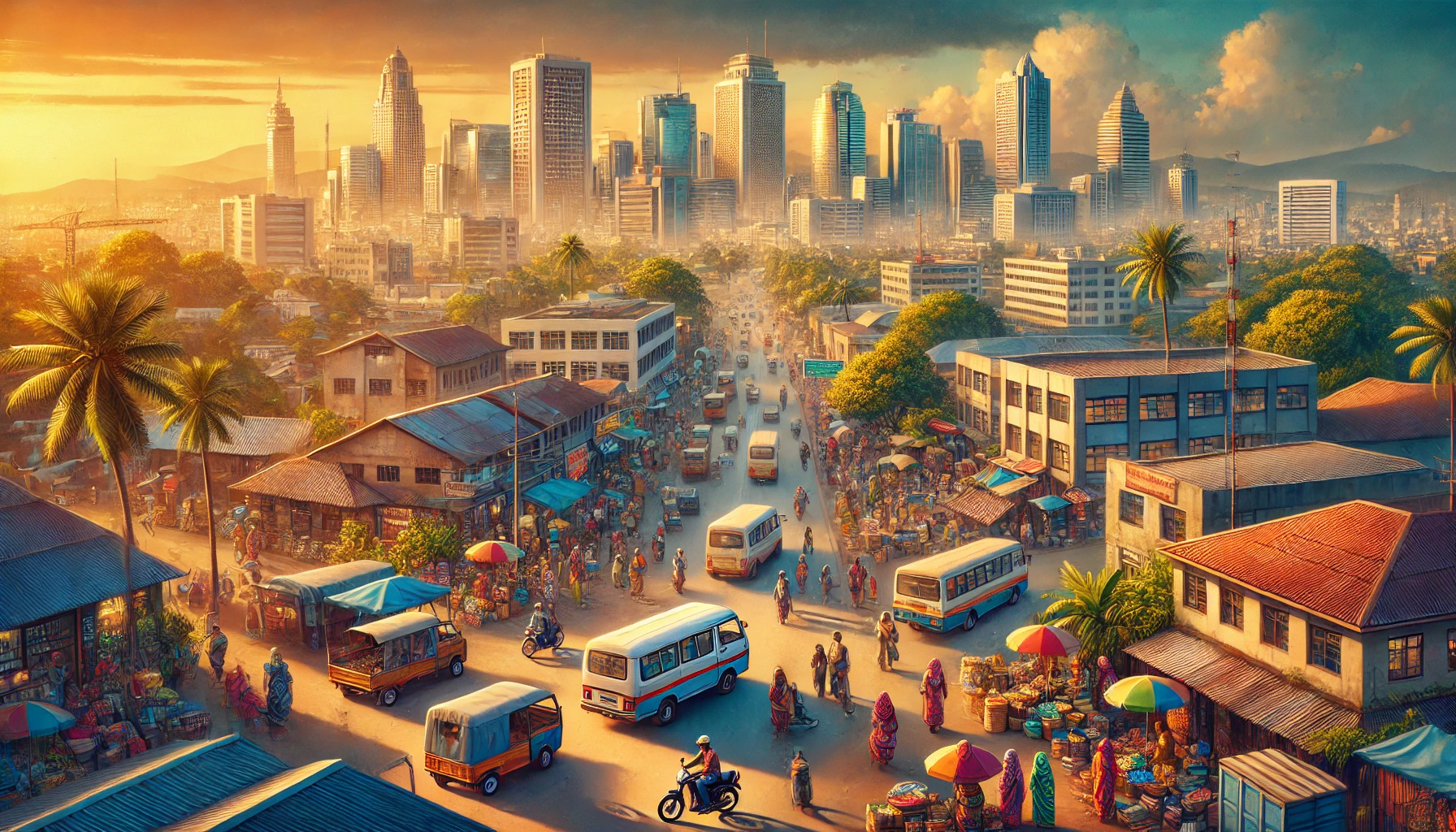A revolution is simmering beneath the neon glow of Africa’s cities. Not a revolution of guns and barricades, but of perception, ambition and sheer, unrelenting frustration.
This is a story of broken promises. A generation sold the dream of opportunity but handed the reality of dead-end jobs, political rot, and economies that refuse to absorb their talent. Young Africans have been told they are the future – yet the present keeps them locked out. And now, they are pushing back.
The cities the swallows their dreams
Africa’s urban explosion is unlike anything the world has ever seen. The statistics are dizzying: a continent where the median age is 19, where cities have ballooned from 32 million people in 1960 to nearly half a billion today. By 2050, Africa will be home to one in four people on the planet, most of them living in urban centres designed for a fraction of their number.
But what good is a city if it can’t provide opportunity? Nairobi’s skyline stretches ever higher, but half of its residents live in slums. Lagos hums with commerce, but its streets are choked with gridlock and desperation. The digital age has connected young Africans to the world’s possibilities – only to remind them, day after day, how far out of reach those possibilities remain.
From frustration to fire
Disillusionment isn’t a quiet thing. It roars. The past decade has seen wave after wave of youth-led protest, from the #EndSARS movement in Nigeria to mass uprisings in Kenya and Senegal. These are not ideological revolts; they are raw, unfiltered cries of anger.
The playbook is familiar. A spark – whether a tax hike, a police killing, or an election scandal – ignites the dry tinder of long-standing resentment. Governments respond with force, hoping to crush the dissent. But this isn’t the old Africa, where strongmen ruled unchallenged. Today’s protesters are agile, digital, leaderless. They don’t need permission from party bosses or trade unions. They organise on Telegram, trend on Twitter, and disrupt the streets in ways that make traditional power structures scramble for relevance.
The PR problem no-one wants to solve
African leaders are caught in a trap of their own making. They have mastered the art of the grand promise, the set-piece speech, the infrastructure ribbon-cutting. But the audience is no longer buying it. This generation doesn’t trust legacy institutions. They don’t want political slogans; they want jobs, dignity, a shot at shaping their own future.
And if they don’t get it? They will tear down the old order piece by piece.
What comes next?
Cities are changing – not just physically, but psychologically. The rules of engagement between government and governed are being rewritten in real time. There’s an energy in Africa’s metropolises that can’t be crushed, only channelled. The question is: will those in power harness it, or will they let it burn everything down?
One thing is clear – this generation will not be ignored. The old elites can no longer control the narrative. The only option left is to adapt, or watch their grip on power slip away.
This is not just a crisis. It’s an inflection point. And the world is watching.







